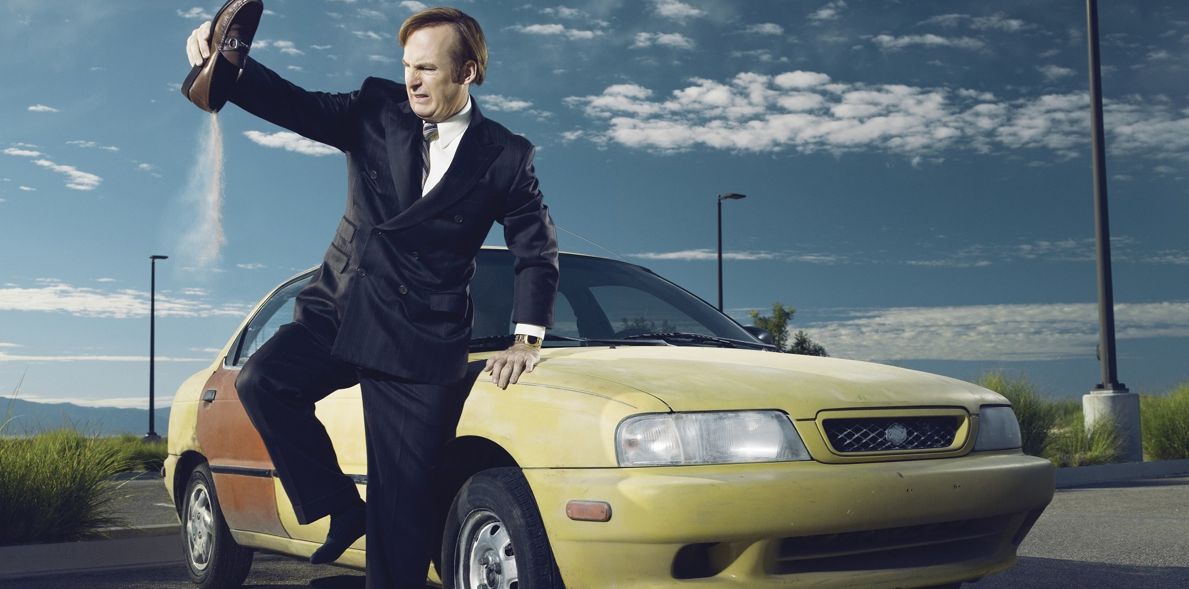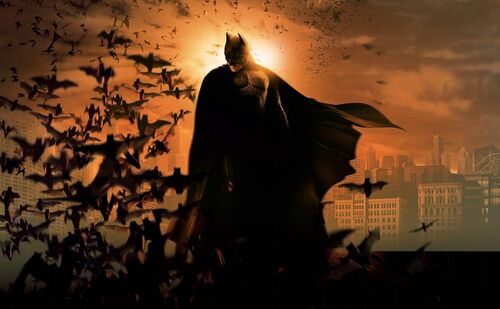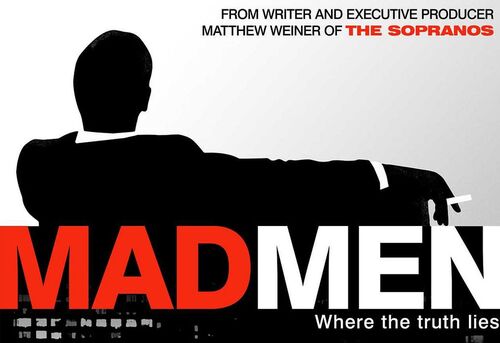
Better Call Saul Season 2 (2016) Review
 Better Call Saul has officially exited the shadow of Breaking Bad. The show can comfortably stand out on its own as one of the best shows on television right now, with its sublime blend of scripting, editing, acting, and production. Apart from the occasionally awkward balancing act, Season 2 is near perfect.
Better Call Saul has officially exited the shadow of Breaking Bad. The show can comfortably stand out on its own as one of the best shows on television right now, with its sublime blend of scripting, editing, acting, and production. Apart from the occasionally awkward balancing act, Season 2 is near perfect.
The season opens again with a glimpse at Saul post-Breaking Bad (again, we presume, as it's never stated but very much implied), but before long its back at it, taking us back to where season 1 ended. It didn't turn out to be a sudden transformation from Jimmy to Saul though. That job he declined, he actually decided to take (which felt a little awkward, like going back on your word, but whatever), and while his antics are just as enjoyable this time around, the series becomes darker. Each action that Jimmy takes is harmful to someone, even though he's nine times out of ten harboring good intentions.
It solidifies the series as a tragedy, as we witness the slow downfall of a man who ultimately wants to do right, but has a skewed view of what the right thing to do really is. Season 2 for much of its screen-time was Kim Wexler's party, and Rhea Seehorn is phenomenal, holding her own and proving that she can carry scene after scene. She is Jimmy's second most prominent victim, despite the fact that every thing he does is for her benefit. Early in the season, the two con a wealthy (and very dislikable) business man, and it's a joy to watch unfold. The two are electric when the concerns of the real world are put on hold for an off-the-books afternoon. And it seemed as though Jimmy had found a replacement partner in crime, following season 1's finale.
It teases what could have been, but that is not who Kim Wexler is. She's a hard-working woman who is striving for something better, but vouching for Jimmy is a dangerous game that she pays for. Her evolution both because of and in spite of Jimmy, but nevertheless for her own benefit, is as uplifting as it can be heartbreaking. Her devotion to Jimmy is its own shame, and it's to the show's credit that we can simultaneously hope for the relationship's longevity but also recognise that she'd be a whole lot better without it.
Mike plays a relatively significant role in the season, despite the fact that he and Jimmy spend maybe two scenes together for the entire run. Jonathan Banks' continues to nail the character, naturally, but what's remarkable to watch is a Mike that isn't driven by necessity or professionalism. This is almost as much the story of Mike's downfall as it is Jimmy's, because the man is acting purely out of passion. And while that is an understated element to his choices in Breaking Bad, here his motives extend beyond his granddaughter. There's a strange sense of vigilantism behind his acts, particularly in the final episode. A little less polished is the balancing act between Mike and Jimmy. At times, Jimmy would vanish from the screen for long stretcges, and it would become Mike and Kim's separate stories holding us attentive. But Mike's toiling on the underside of the law feels very different to Jimmy's, almost included for the sake of nostalgia more than for the sake of Saul on its own, and at times it feels like the character could comfortably be relegated to a smaller role for the sake of the show.
But that being said, more screen-time with the grizzled old vet is not something to balk at. The remaining emotional strand is the relationship that drove season 1. Jimmy and his brother Chuck's (Michael McKean) conflict is poetic, the gifted son who fights for every minute piece of respect and admiration versus the brother who, in Chuck's mind, puts to shame everything Chuck stands for, and does it with the love and worship of those around them. That Chuck is always right about Jimmy doesn't hide his obsession with standing on the shoulders of his younger brother (or rather, not having to look up at him), but his rather bizarre illness stamps the tragedy that is the character.
A flashback early in the season features a comedic Jimmy charming Chuck's then wife, with no malice, only to provide some light-hearted dinner chatter that Chuck certainly doesn't approve of. And neither does she, for a while. But eventually she warms to it, and we can only assume that she may have just fallen out of love with the stern seriousness that Chuck embodies. Kim is forced between the two throughout the season, eventually literally, but the finale fittingly focused on the two brothers, and a relationship that's been completely shredded, it seems. Chuck's ability to think his way through the most difficult of mazes is a skill that Jimmy doesn't lack, but his attention to detail is something Jimmy is openly impressed by. Jimmy makes up for it instead with charm and manipulation. And while Jimmy is certainly not unintelligent, Chuck seems willing to finally stoop to his brother's conniving lows, albeit completely within the letter of the law.
In truth, the two are polar opposites, but Jimmy's love for his brother is not disputable. In fact, Jimmy's love for the two people in his life is the sole cause of his torment, and the sole cause of the pain those people experience. It begins to paint a clear picture as to how Jimmy becomes the Saul of Breaking Bad, the man who has no ties or relationships that aren't professional. But in mentioning Breaking Bad, it's worth highlighting that Saul no longer requires Bad to justify its existence. The funny thing is, it never did. Saul is so meticulously crafted, created and edited with a patience that can't be found anywhere else on television, that it deserves its place among the pantheon of great modern television. It's a shame, then, that it seems like the show will never gather the same kind of steam as Bad.
Season 2's finale confirms the return of one particular Breaking Bad alum, but at the same time it doesn't confirm it at all. There is no interest in shoehorning any particular element in order to fast-forward itself. Vince Gilligan and Peter Gould are comfortable enough to let their tale unfold organically, and with cinematography as beautiful as Saul's, that's not a problem at all. Season 3 feels like an eternity away, but it's not the kind of show that leaves you speculating. Instead, it twists and turns in a miraculous way. You throw your head back and say "ha!" as if you should have seen it coming, but you never do. Such is the artistry of Better Call Saul, it's secrets are never hurried, and their always worth the wait.


